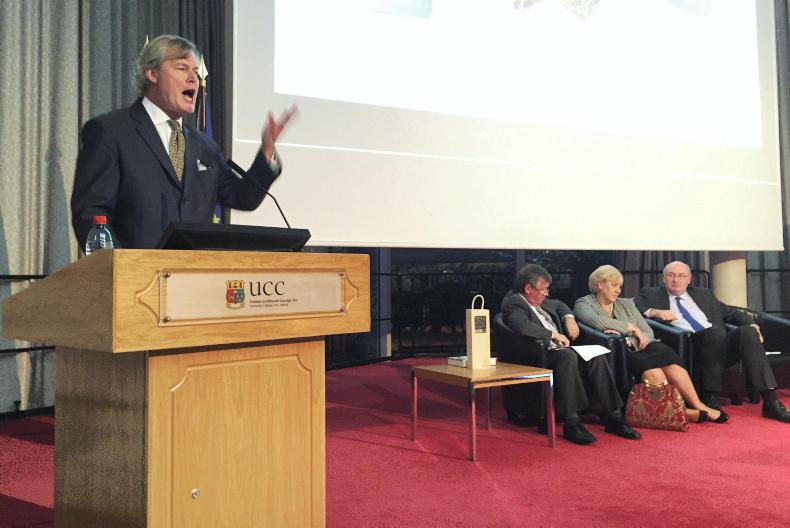While a number of points included in 1996 remain in the text adopted this Tuesday at the Cork 2.0 European conference on rural development, three new areas have emerged in the document expected to shape EU policy after the curent CAP expires in 2020.
'Encouraging climate action'
With a direct reference to last year's Paris agreement on climate change, the Cork 2.0 declaration highlights the "critical need to addresse the climate change challenge in rural as well as urban areas".
"There is significant scope for carbon sequestration and storage in rural areas," the document states, adding that "action must go beyond carbon-based solutions and should promote sound nutrient and livestock management".
More broadly, the declaration reads that environmental measures should "reflect the variety of local circumstances".
'Overcoming the digital divide'
The lack of broadband infrastrucutre came up time and again during the two days of the conference and it appears repeatedly in the declaration. The document states that "the rural economy and rural businesses will depend increasingly on digitisation" and the policy orientation on "investing in rural viability and vitality" insists that "particular attention mus be given to overcome the digital divide and develop the potential offered by connectivity and digitisation of rural areas".
The point on "boosting knowledge and innovation", too, refers to access to "access to appropriate technology, state-of-the-art connectivity, as well as new management tools to deliver economic, social and environmental benefits".
Fairness in the food chain
The Cork 2.0 declaration goes further than its 1996 predecessor in addressing economic imbalances in the rural economy. The chapter on "strengthening rural value chains" includes "fair and transparent contractual relations within the supply chain, and legal possibilities for organising farmers' collective actions".
"I am accepting this Cork 2.0 declaration as a document of serious intent and I now can bring this document forward as part of my policy considerations in agriculture and rural development in the months and years ahead," said European Commissioner for Agriculture and Rural Development Phil Hogan - though he stressed that it would not be used to reform the current CAP.
After taking part in the conference, IFA rural development chairman Joe Brady told the Irish Farmers Journal: "The declaration sounds good. I suppose at the end of the day, it will take funding to put all the things that were mentioned here today in place."
Listen to an interview with Joe Brady in our podcast below:
Funding may prove to be the next challenge, with Commissioner Hogan warning that Brexit would leave a €7bn annual hole in the EU's budget from the UK's net contribution. Meanwhile, publicscrutiny of European spending is increasing. "Because we're investing billions of taxpayers' money every year, it is important that the public has confidence in what is being done in their name, and therefore we must constantly strive to achieve the highest levels of rural governance, while at the same time pursuing an agenda of simplification and transparency," Hogan said.
With the EU budget debate for the 2020-2026 period starting in the coming months, Hogan warned that financial decisions rest with the European Council of heads of state and government. "As agriculture and rural development commissioner, I will of course be trying to maximise the resources that I can garner in order to implement these important policy initiatives that heve been discussed here today," he said.
Full coverage: Cork 2.0 European conference on rural development









SHARING OPTIONS